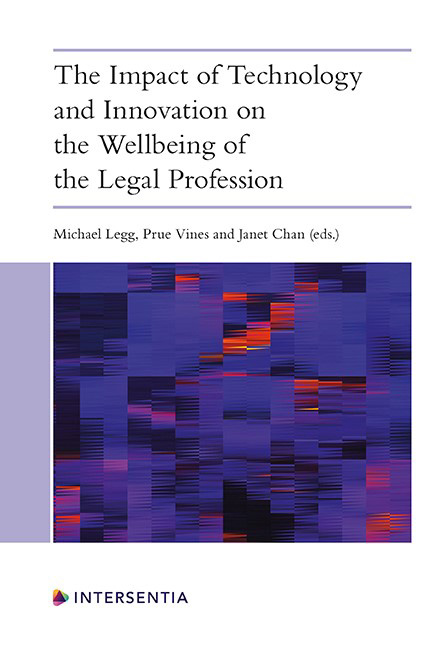Foreword
Published online by Cambridge University Press: 22 December 2020
Summary
There has been an explosion of concern about the impact of technology and innovation on the wellbeing of the legal profession, especially in Australia and the United Kingdom. Mention of‘wellbeing‘ itself signals something that is very new. The impact of stress and mental illness on the delivery of services, outside of the armed services, were not systemically studied before the twenty-first century. Such matters played no role in legal duties of care or professional regulation either, until the very recent past.
As a pointer to the modernity of the wellness issue, a cited text written in 2013 is described as pre-dating the‘current explosion of interest‘ in the United Kingdom (p. 314). Australian attention began earlier but it goes no further back than around the year 2000. For seeding the debate, much credit goes to the campaign of Marie and George Jepson and the Foundation they established following the death by suicide in 2004 of their lawyer son. The Tristan Jepson Memorial Foundation (now Minds Count) explored what is peculiarly toxic about the study and practice of law compared to other callings.
The chapters in this excellent compilation analyse key drivers that impact negatively upon the wellbeing of many legal practitioners. Some of them were changes in the nature of legal practice, others the stuff of modern life. The book‘s contributors strive to identify differential impacts on different classes of person. Students‘, teachers‘and lawyers‘ own perceptions of their stress and anomie are surveyed as well. The paucity of practical solutions on offer confirms to this reader that little will improve under the dominant neoliberal ideology.
Change itself can bring dangerous levels of stress. This is so even if its innovations produce optimal outcomes in the careful hands of many users. (The same may be said about motor cars and circular saws.)
This book also highlights the recency of many key innovations on the technological front and in workplace practices. Word-processing computers arrived in the late 1970s. Cellular phones and the internet in the 1980s, with email quickly supplanting‘snail mail‘ and facsimiles.
- Type
- Chapter
- Information
- Publisher: IntersentiaPrint publication year: 2020



